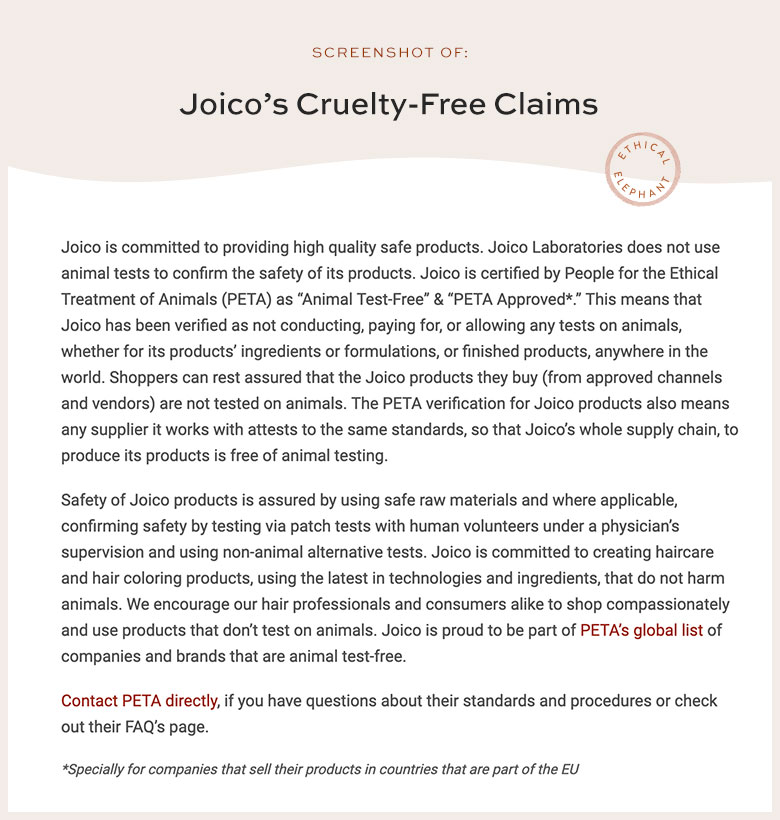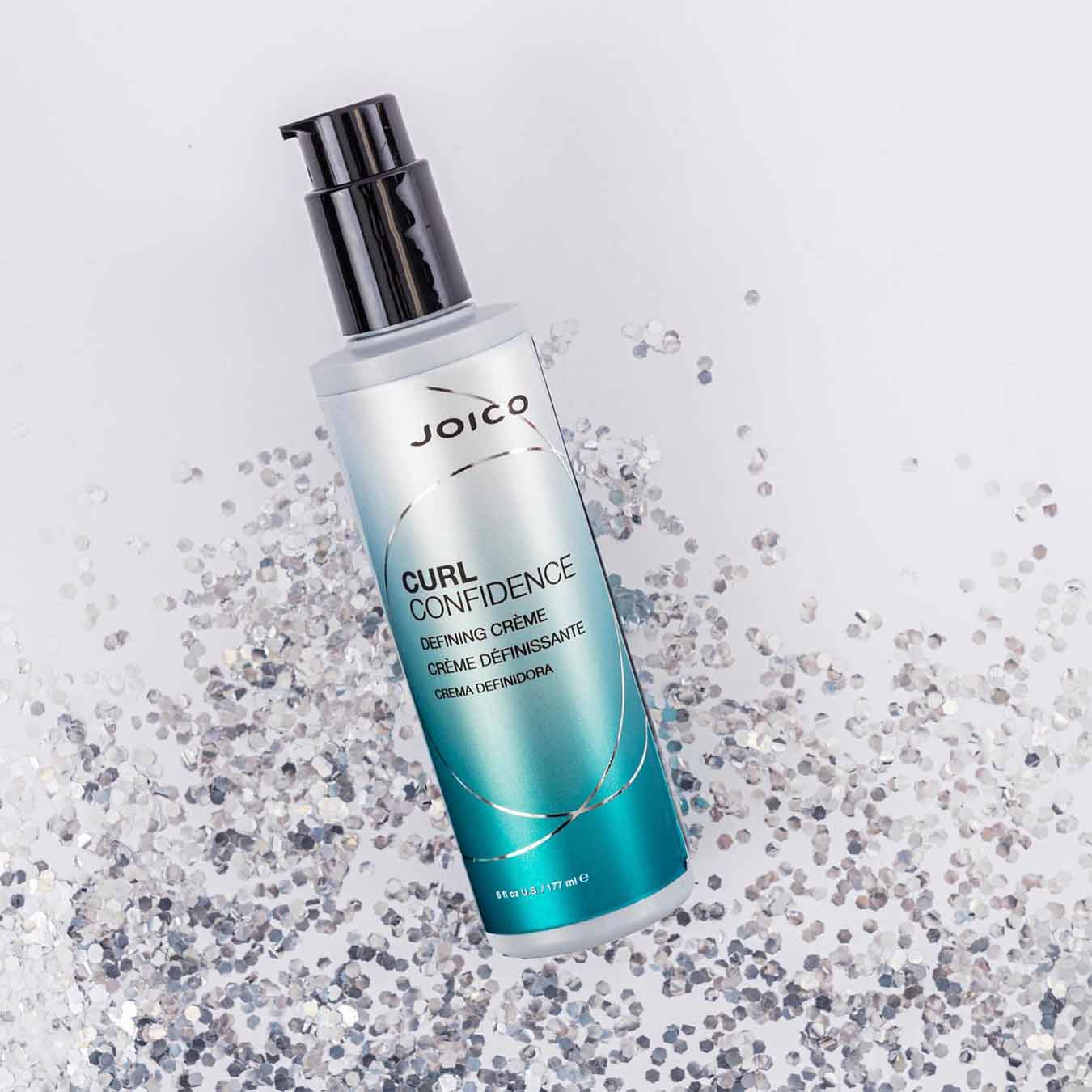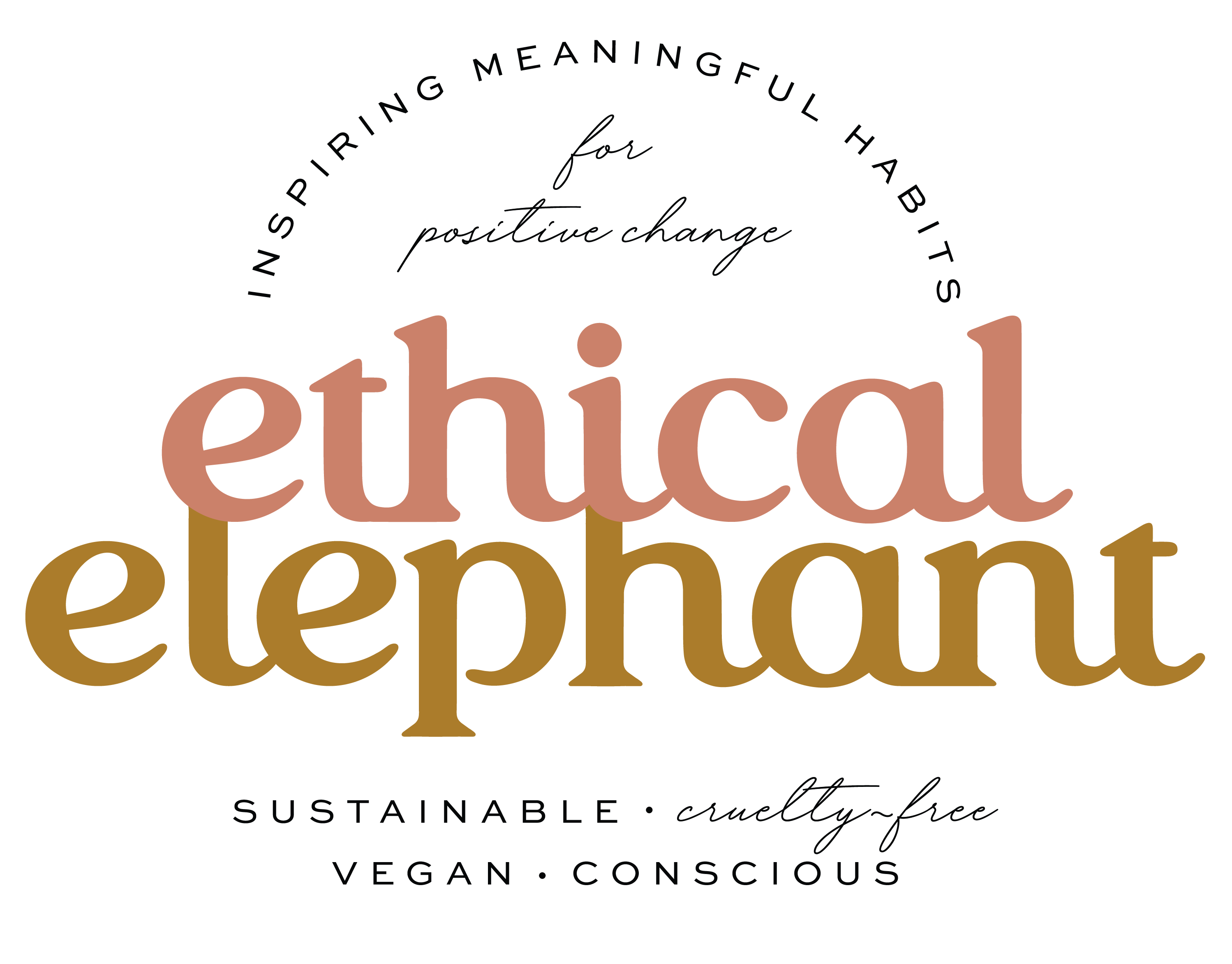This post may contain affiliate links that at no additional cost to you, I may earn a small commission.
Joico is *Cruelty-Free
Joico has confirmed they do not test their products or ingredients on animals or ask others to test on their behalf. Their suppliers also do not test on animals, nor do they allow their products to be tested on animals when required by law. And finally, their products are not sold in stores in mainland China or any other country that may require animal testing.
By our standards, we would consider Joico to be *Cruelty-Free.
*Joico is owned by Zotos International, a subsidiary of Henkel. And Henkel is a corporation that is NOT cruelty-free because they allow some of their other brands to test on animals.
It’s your choice whether you want to support or boycott cruelty-free brands owned by a parent company that is not cruelty-free. There is no ‘right’ or ‘wrong’ answer to this. I encourage you to do what you’re comfortable with, but I think it’s important to disclose that Henkel owns Joico.
Below is a screenshot of what’s currently stated on Joico’s website about its animal testing policy:

What About China’s Animal Testing Laws?
Joico has confirmed they do not sell their products in retail stores in mainland China; therefore, they are not required to test on animals.
“We do not sell to China at this time.”
As of May 1, 2021, some imported ordinary cosmetics can be exempt from animal testing under certain conditions. However, for the most part, animal testing is still legally required for most imported cosmetics in 2022.
Cruelty-Free Policies
Note that there is no legal definition for the label ‘Cruelty-Free.’ It can mean different things to different people. But Cruelty-Free is generally used to imply no animal testing. More specifically, the ingredients, formulation, or finished product are not tested on animals at any stage of product development.
At ethical elephant, we always assess a company’s cruelty-free policy using our Cruelty-Free Checklist. This ensures no animal testing was performed by the brand itself, its suppliers, or any third parties.
Also, note that Cruelty-Free and Vegan don’t always mean the same thing.
*Joico is Not 100% Vegan
‘Vegan’ in cosmetics can refer to an entire brand that is 100% Vegan or a specific product is vegan.
In the case of Joico, they do not claim to have ANY vegan options at this time.
Below is a snippet of the email response I received from Joico when I asked if any of their products are vegan-friendly:
“Joico is not vegan. Lanolin, a derivative of sheep wool, may be formulated into various Joico products. For your convenience, all of the Joico Brand ingredients are listed on the packaging.”
Because Joico does not manufacture or claim any of its products are vegan, the brand will NOT be part of our Cruelty-Free Brands List. Only brands that are either 100% vegan or have one or more items that are vegan are included in our directory.
Vegan Policies
Similar to ‘Cruelty-Free,’ there is no standard or legal definition for the label ‘Vegan.’ But it usually means no animal-derived ingredients or animal by-products.
Some common animal products used in cosmetics include carmine, lanolin, snail mucus, beeswax, honey, pearl or silk-derived ingredients, animal-based glycerin, keratin, and squalene.
There are plant-based and synthetic alternatives to animal-derived ingredients. But it’s sometimes difficult to know with certainty whether a product is vegan just by reading the ingredient list.
So it’s best to ask the company and manufacturers to ensure the ingredients they’ve chosen to use were from non-animal sources.
I hope this article helped you to understand Joico’s cruelty-free and vegan status and by choosing cruelty-free together, we can help end animal testing for cosmetics once and for all!







